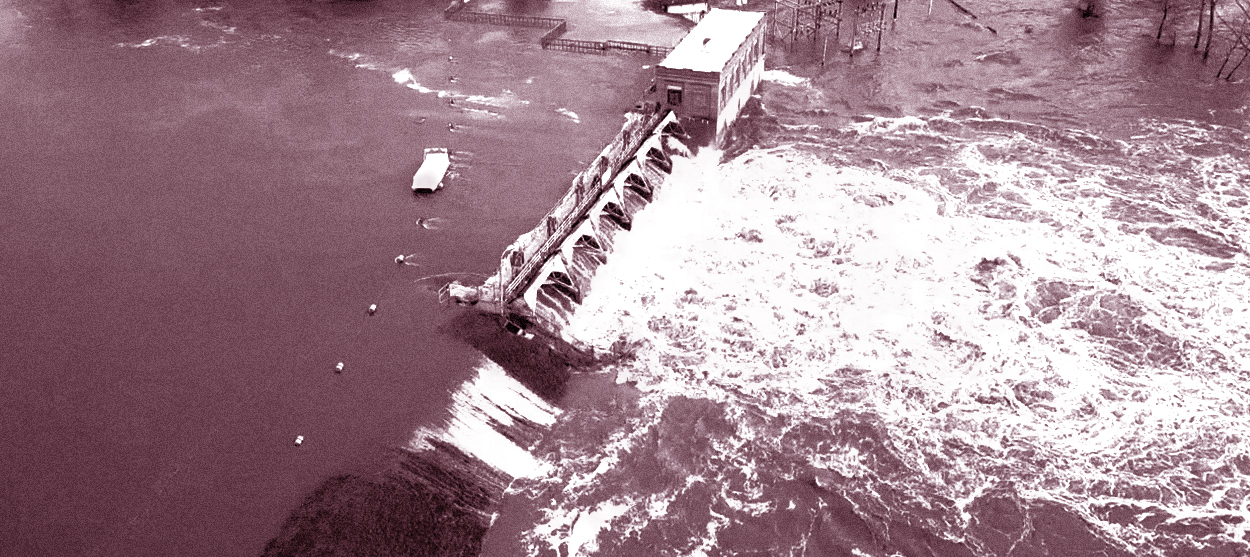A predictable catastrophe in Michigan
Everyone saw this coming


A free daily email with the biggest news stories of the day – and the best features from TheWeek.com
You are now subscribed
Your newsletter sign-up was successful
How do you declare a state of emergency when a similar order is already in effect? What does it mean to tell people to shelter indefinitely with friends and relations whom it had previously been a misdemeanor even to visit? How do you enforce social distancing in makeshift shelters, or put evacuees up in hotels that in many cases were already closed?
These are some of the questions that thousands of people will learn the answers to in central Michigan, where flooding has led to the failure of multiple dams along the Tittabawassee River. Midland, the largest municipality in the county of the same name, is home to a population of about 40,000 and, not exactly encouragingly for a city that is expected to find itself in as much as nine feet of water in parts, Dow Chemical. The main Dow plant is, thank goodness, being protected by the National Guard.
Never mind the public health implications of all this. This is a serious ecological crisis. It is, unsurprisingly to many of the state's residents, one that was predicted years ago. In 2018, the Federal Energy Regulatory Commission, which is responsible for national oversight of dams in this country, reported that Edenville Dam could not handle more than 50 percent of the load from what researchers projected as the highest likely flood levels in the region. While it appears that a task force (always a confidence-inspiring phrase!) was formed in response to the report, with the goal of implementing its recommendations for upgrades, the actual engineering work was not slated to finish until this year, with construction not expected to conclude until 2023.
The Week
Escape your echo chamber. Get the facts behind the news, plus analysis from multiple perspectives.

Sign up for The Week's Free Newsletters
From our morning news briefing to a weekly Good News Newsletter, get the best of The Week delivered directly to your inbox.
From our morning news briefing to a weekly Good News Newsletter, get the best of The Week delivered directly to your inbox.
All of which is to say that something like this was bound to happen. Last year was the wettest in more than a century. So far 2020 appears to be on pace to break more precipitation records. (As I write this the park a few blocks from my house has flooded for the third time in as many years.) Never mind the damn roads. We needed to fix the damn dams. Nor was this some kind of aspirational project, like the goofy turbines meant to harness the power of wind coming off the Great Lakes. Two years ago this should have been urgent.
Unfortunately, the Tittabawassee dams are a drop in the bucket of Michigan's water-related problems. A report in 2019 suggested that the state's water infrastructure requires more than $12 billion in necessary upgrades. The American Society of Civil Engineers gives states semi-annual report cards to states on the health of various aspects of their infrastructure: Michigan recently earned a D and a D minus for drinking water and stormwater respectively; the C for wastewater and C minus for dams were encouraging by comparison. Only two-thirds of our dams are considered older than their design lives!
It is impossible to discuss any of these problems without mentioning the crisis with which Michigan has become synonymous in recent years: water in Flint. Six years after it was discovered that shifting the city's water supply to the Flint River and failing to treat it properly exposed a hundred thousand people to elevated levels of lead, water lines and pipes are still awaiting replacement and bottled water has remained an unalterable fact of life for many residents. Officials from the city, the Michigan Department of Environmental Quality, and the EPA have resigned; one of them, Corinne Miller, who knowingly withheld information about legionella in the water supply, was even ordered to write a letter saying she was sorry and fined $1,000.
These are the sorts of problems no one wants to address until it's too late, not just in Michigan but across the United States, where the phrase "crumbling infrastructure" has been with us so long that it too is probably on the verge of collapse. We are an old broken-down country, physically and spiritually, incapable of meaningful action until we find ourselves in the middle of a totally predictable crisis. So many of the issues that have arisen during the current pandemic — the dangers of nursing homes, racial inequality, social atomization — were ones that should have been familiar to us and dealt with long before we found ourselves faced with a novel virus. Instead we waited as we always do until the dams burst, metaphorically and otherwise.
A free daily email with the biggest news stories of the day – and the best features from TheWeek.com
Matthew Walther is a national correspondent at The Week. His work has also appeared in First Things, The Spectator of London, The Catholic Herald, National Review, and other publications. He is currently writing a biography of the Rev. Montague Summers. He is also a Robert Novak Journalism Fellow.
